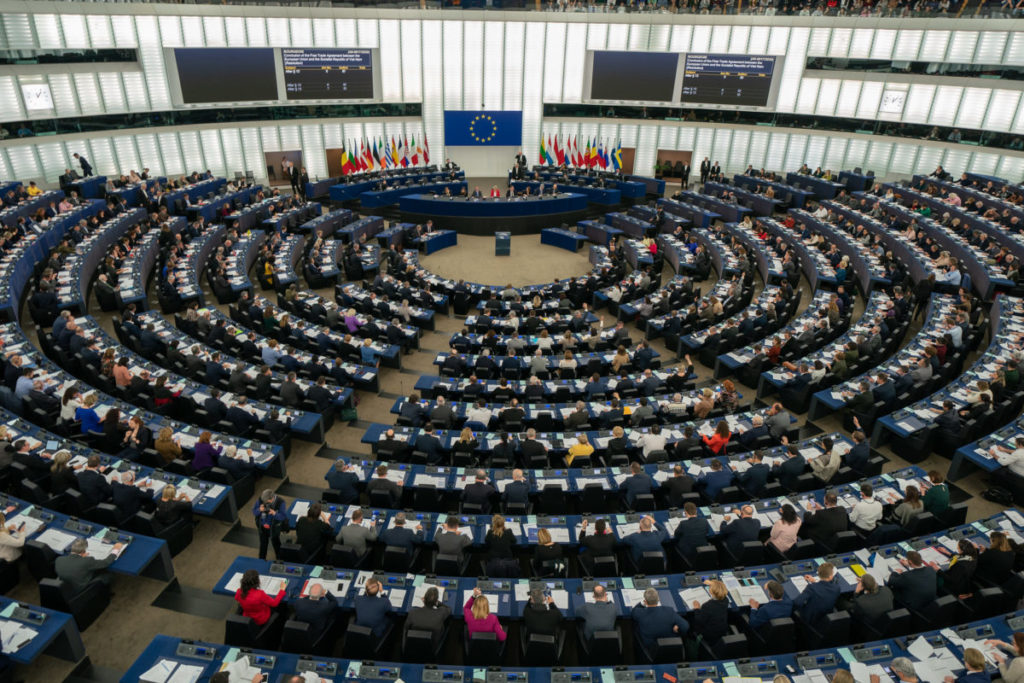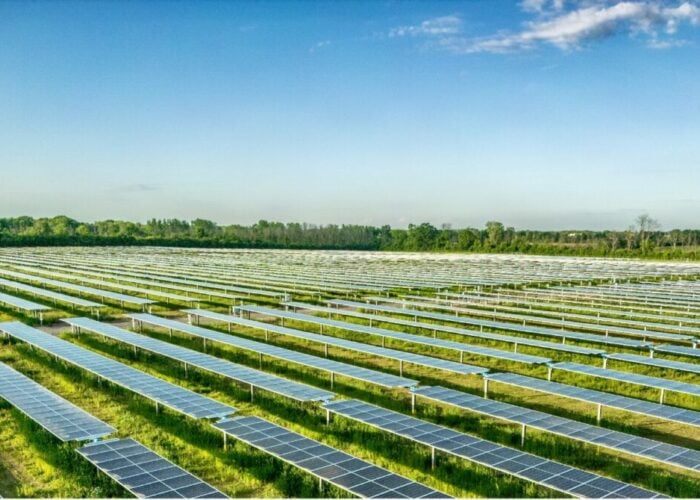
The European Parliament voted to accept the Net Zero Industry Act (NZIA) on Tuesday (21st November), which will seek to onshore manufacturing for renewable energy technologies like solar PV, battery energy storage and wind to the EU.
The legislation was adopted with 376 votes to 139, with 116 abstentions.
Try Premium for just $1
- Full premium access for the first month at only $1
- Converts to an annual rate after 30 days unless cancelled
- Cancel anytime during the trial period
Premium Benefits
- Expert industry analysis and interviews
- Digital access to PV Tech Power journal
- Exclusive event discounts
Or get the full Premium subscription right away
Or continue reading this article for free
Parliament’s decision has been met with both approval and some trepidation by representatives in the European solar industry. It will now pass to negotiations with the European Council to clarify its specifics.
The EU said that the aim of the NZIA is to enable Europe to meet 40% of its clean energy deployment needs with domestically-manufactured products. The final amendments to the act, voted on by Parliament yesterday, broadened its scope to cover the “entire supply chain, including components, materials, and machinery for producing net zero technologies.”
In the proposal itself, Parliament said: “Given the complexity and the transnational character of net-zero technologies, uncoordinated national measures to ensure access to those technologies would have a high potential of distorting competition and fragmenting the Single market. Therefore, to safeguard the functioning of the Single market it is necessary to create a common Union legal framework to collectively address this central challenge by increasing the Union’s resilience and security of supply in the field of net-zero technologies.”
Pre-qualification criteria
The NZIA proposes non-price and pre-qualification criteria to be applied in public auctions and tenders for renewable energy capacity. At this stage, the pre-qualification criteria include legislation that will introduce a local content requirement for projects and technologies to be included in public procurements.
How this will work is yet to be clarified. However, Dries Acke, policy director at trade association SolarPower Europe described a local content ruling as an “ugly turn… meaning that technologies that are partially produced outside Europe are not even allowed to bid into public auctions. This is a red flag for the solar sector and for those committed to the EU’s energy security and climate goals.”
By contrast, the European Solar Manufacturing Council (ESMC), which was established in 2019 to represent the interests of the bloc’s manufacturing sector, applauded this particular development. In a statement following the vote it said: “The ESMC congratulates the inclusion of pre-qualification criteria for public procurements and auctions — ensuring no more than 50% of the net-zero technology part of the tender shall originate from third countries… practically meaning the reduced import from China after the implementation of the NZIA.”
The EU and much of the west has been more-or-less united in its stated aims to reduce reliance on Chinese PV supply. Last month, PV Tech Premium spoke with French PV manufacturing startup Carbon, which is in the process of setting up an entirely non-Chinese solar supply chain for its southern France facility. It called for direct financial support for onshoring the solar supply chain to Europe, particularly in the upstream to show support for the bloc’s largest polysilicon manufacturer, Wacker Chemie.
Non-price criteria
The non-price criteria in the NZIA include products’ sustainability and resilience to global supply insecurity, which will be assessed for eligibility for public procurement.
“Using non-price criteria is a good idea to reward more sustainable and more locally produced technologies,” Acke said in a statement. “However, we’ve been clear that a fundamental shift in public auctions and procurement like this should be phased-in gradually and be tailored to the specific supply chain starting point of solar PV, as also proposed by the European Solar Industry Alliance.
“It would be a mistake to apply these criteria sweepingly to all auctions and to all technologies alike from day one. So, we’re pleased to see the Parliament proposal to have technology-specific guidance from the European Commission six months after adoption of the Act on how and when to apply these non-price criteria.”
Earlier this month, the European Solar PV Alliance (ESIA), which was launched by the European Commission, gave its recommendations for non-price criteria for solar PV procurement. “Given the urgency of providing stable market conditions for the remaining EU solar manufacturers, ESIA suggests to focus on EU content in the beginning and proposes to add other non-pricing criteria such as environmental, sustainable, energy-efficient, innovation, social, etc. as soon as they have been adopted by the EU Commission.”






